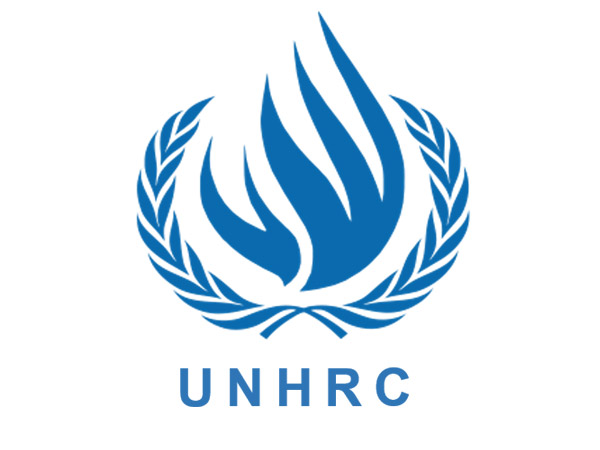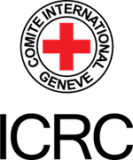Acronym: IGF
Established: 2006
Address: Palais des Nations, 1211 Geneva 10, Switzerland
Website: https://www.intgovforum.org
Stakeholder group: International and regional organisations
The IGF provides the most comprehensive coverage of digital policy issues on the global level. The IGF Secretariat in Geneva coordinates both the planning of IGF annual meetings (working together with the Multistakeholder Advisory Group (MAG) and the wider IGF community) and a series of intersessional activities (run all year long). These activities could be summarised in three ‘multi’ initiatives:
- Multistakeholder participation: It involves governments, business, civil society, the technical community, academia, and other actors who affect or are affected by digital policy This diversity is reflected in IGF processes, events, and consultations.
- Multidisciplinary coverage: It relates to addressing policy issues from technological, legal, security, human rights, economic, development, and sociocultural perspectives. For example, data, as a governance issue, is addressed from standardisation, e-commerce, privacy, and security perspectives.
- Multilevel approach: It spans IGF deliberations from the local level to the global level, through a network of over 165 national, subregional, and regional IGF (as of November 2023). They provide context for discussions on digital policy like the real-life impact of digitalisation on policy, economic, social, and cultural fabric of local communities. The IGF Secretariat supports such initiatives (which are independent) and coordinates the participation of the overall network.
The IGF ecosystem converges around the annual IGF, which is attended by thousands of participants. The last few IGFs include Paris (2018), Berlin (2019), online edition due to the pandemic (2020), Katowice (2021), Addis Ababa (2022), and Kyoto (2023), which engaged over 11,000 participants, and more than 1,000 speakers in over 300 sessions.
The intersessional work includes best practice forums (on issues such as cybersecurity, local content, data and new technologies, and gender and access); dynamic coalitions (on issues such as community connectivity, network neutrality, accessibility and disability, and child safety online etc.); policy networks (on AI, environment, meaningful access and Internet fragmentation); and other projects such as Policy Options for Connecting and Enabling the Next Billion(s) (which ran between 2015 and 2018) as well as a number of capacity development activities.
IGF mandate
The IGF mandate was outlined in the Tunis Agenda for the Information Society of the World Summit on the Information Society (WSIS, November 2005). It was renewed for another 10 years by the UN General Assembly (UNGA) on 16 December 2015, (70/125).
The main functions of the IGF are specified in Article 72 of the Tunis Agenda. The mandate of the Forum is to:
- Discuss public policy issues related to key elements of Internet governance in order to foster the sustainability, robustness, security, stability, and development of the internet.
- Facilitate discourse between bodies dealing with different cross-cutting international public policies regarding the internet and discuss issues that do not fall within the scope of any existing body.
- Interface with appropriate inter-governmental organisations and other institutions on matters under their purview.
- Facilitate the exchange of information and best practices, and in this regard, make full use of the expertise of the academic, scientific, and technical communities.
- Advise all stakeholders in proposing ways and means to accelerate the availability and affordability of the Internet in the developing world.
- Strengthen and enhance the engagement of stakeholders in existing and/or future internet governance mechanisms, particularly those from developing countries.
- Identify emerging issues, bring them to the attention of the relevant bodies and the general public, and where appropriate, make recommendations.
- Contribute to capacity building for internet governance in developing countries, drawing on local sources of knowledge and expertise.
- Promote and assess, on an ongoing basis, the embodiment of WSIS principles in internet governance processes.
- Discuss, inter alia, issues relating to critical internet resources.
- Help to find solutions to the issues arising from the use and misuse of the internet, of particular concern to everyday users.
- Publish its proceedings.
In fulfilling its mandate, the Forum is institutionally supported by the UN Secretariat for the Internet Governance Forum placed with the Department of Economic and Social Affairs (DESA). Its working modalities also include MAG and most recently the Leadership Panel, both appointed by the UN Secretary-General.
Digital policy issues
Until 2019, IGF annual meetings used to host sessions tackling a wide range of digital policy issues (for instance, IGF 2018 had eight themes: cybersecurity, trust, and privacy; development, innovation, and economic issues; digital inclusion and accessibility; human rights, gender, and youth; emerging technologies; evolution of internet governance; media and content; and technical and operational issues). In 2019, in an effort to bring more focus within the IGF, the MAG decided (considering community input) to structure the IGF programme around a limited number of tracks: security, safety, stability, and resilience; data governance; and digital inclusion. This approach was kept for IGF 2020, which saw four thematic tracks: data, environment, inclusion, and trust. The thematic approach did not mean that the IGF saw some digital policy issues as being less relevant than others, but rather that it encouraged discussions at the intersection of multiple issues. The Geneva Internet Platform (GIP) Digital Watch hybrid reporting (IGF 2023) illustrates this trend, showing that the IGF discussed a wide range of policy issues (across all seven internet governance baskets of issues) within the limited number of thematic tracks.
The leadership panel
In line with the IGF mandate and as recommended in the Secretary-General’s Roadmap for Digital Cooperation, the UN Secretary-General established the IGF Leadership Panel as a strategic, empowered, multistakeholder body, to address urgent, strategic issues, and highlight Forum discussions and possible follow-up actions to promote greater impact and dissemination of IGF discussions.
More specifically, the Panel provides strategic inputs and advice on the IGF; promotes the IGF and its outputs; supports both high-level and at-large stakeholder engagement in the IGF and IGF fundraising efforts; exchanges IGF outputs with other stakeholders and relevant forums; and feeds input from these decision-makers and forums to the IGF’s agenda-setting process, leveraging relevant MAG expertise.
The 15-member Panel with ex-officios meet at least three times a year in person, in addition to regular online meetings.
Future of meetings
Since its first meeting in Athens (2006), the IGF has been a pioneer in online deliberation and hybrid meetings. In addition to individual online participation, the IGF has encouraged the development of a network of remote hubs where participants meet locally while following online deliberations from the global IGF. In this way the IGF has created a unique interplay between local and global deliberations through the use of technology. For hybrid meetings delivered in situ and online, the IGF developed the function of remote moderator, who ensures that there is smooth interplay between online and in situ discussions.
The 19th annual IGF meeting will be hosted by the Government of Saudi Arabia in Riyadh in December 2024. The 2025 host is yet to be announced.
Social media channels
Facebook @IGF – Internet Governance Forum
Flickr @IGF
Instagram @intgovforum
LinkedIn @intgovforum
X @intgovforum
YouTube @Internet Governance Forum (IGF)







